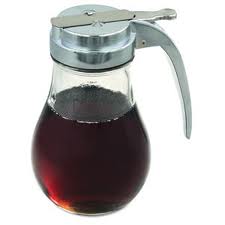An audit investigation of the Austin Public Health Department reveals inspectors napping, shopping, and taking extended breaks. Unfortunately things like this happen and without proper management and effective leadership, things like this will continue to happen.
Disappointing when the actions of a few inspectors tarnish the reputation of others who actually take pride in the work they do and have an ethical, moral backbone. When I first started as an inspector, I recall hearing a number of stories of bribery on the job and other ridiculous things. Like any profession, you have the good, bad, and ugly.
David Barer of KXAN writes
Austin Public Health’s Environmental Services Division, which conducts restaurant inspections among other duties, “wasted city resources as a result of grossly inefficient practices and procedures,” according to the audit.
Auditors also found three environmental health officers wasted time while on the city clock, and two “may have attempted to conceal their misuses on their inspection reports.”
Environmental health officers spend a majority of their time in the field with “limited oversight,” according to the report. Inspectors had no set list of daily inspections; rather, inspectors chose to inspect whichever restaurant was due, and officers were not required to notify supervisors ahead of inspections or check in before or after they were conducted, auditors found.
Investigators said they found several instances of officers saying their inspections took place at times that did not square with what the auditors observed.
According to the report, supervisors were only conducting a “supervisory audit,” which is an in-person check of an officer’s inspection, on less than two percent of inspections. Despite concerns about officers wasting time, management did not regularly review or question how time was being used in the field.
· KXAN Investigation: Restaurant inspectors weren’t meeting inspection-rate standards.
Audit office investigators followed three environmental health officers inspectors during their daily routine and found inspectors napping, shopping and exercising, according to the report.
Investigators found one environmental health officer working out at a local gym for an hour and a half to two hours on at least two separate days. She also left work an hour early on one occasion. She “also may have attempted to conceal the misuse by misrepresenting the time in and out on her written inspection reports,” the audit states.
Another employee was observed napping in her car and misrepresented the times she went in and came out of a restaurant inspection, auditors said.
The rest of the story can be found here:
http://kxan.com/2017/09/01/audit-finds-austin-restaurant-inspectors-shopping-napping-while-on-the-job/



(1).jpg) year.
year.  farmers thought that abattoirs should do more to prevent outbreaks, abattoir owners said that farmers should do more through better cleaning of livestock before slaughter, and butchers claimed that meat inspectors could be more effective.
farmers thought that abattoirs should do more to prevent outbreaks, abattoir owners said that farmers should do more through better cleaning of livestock before slaughter, and butchers claimed that meat inspectors could be more effective. .jpg) The outbreak, in September 2005, had become the second biggest to hit the UK by the time it ran its course.
The outbreak, in September 2005, had become the second biggest to hit the UK by the time it ran its course. stating,
stating,.jpg) and I think in this case, certainly it could always be worse and we try to make a better system as we move forward."
and I think in this case, certainly it could always be worse and we try to make a better system as we move forward." Prof Hugh Pennington, who has chaired two public inquiries into major outbreaks of E. coli O157, said he was concerned about the number of experienced personnel being lost due to budget cuts, adding,
Prof Hugh Pennington, who has chaired two public inquiries into major outbreaks of E. coli O157, said he was concerned about the number of experienced personnel being lost due to budget cuts, adding, For all those in Canada and America clamoring for more inspectors, please, read the report Bill-Murray-in-Groundhog-Day impersonator Professor Hugh Pennington wrote after the 2005 E. coli O157 outbreak in Wales, which sickened 160 and killed 5-year-old Mason Jones (right).
For all those in Canada and America clamoring for more inspectors, please, read the report Bill-Murray-in-Groundhog-Day impersonator Professor Hugh Pennington wrote after the 2005 E. coli O157 outbreak in Wales, which sickened 160 and killed 5-year-old Mason Jones (right).